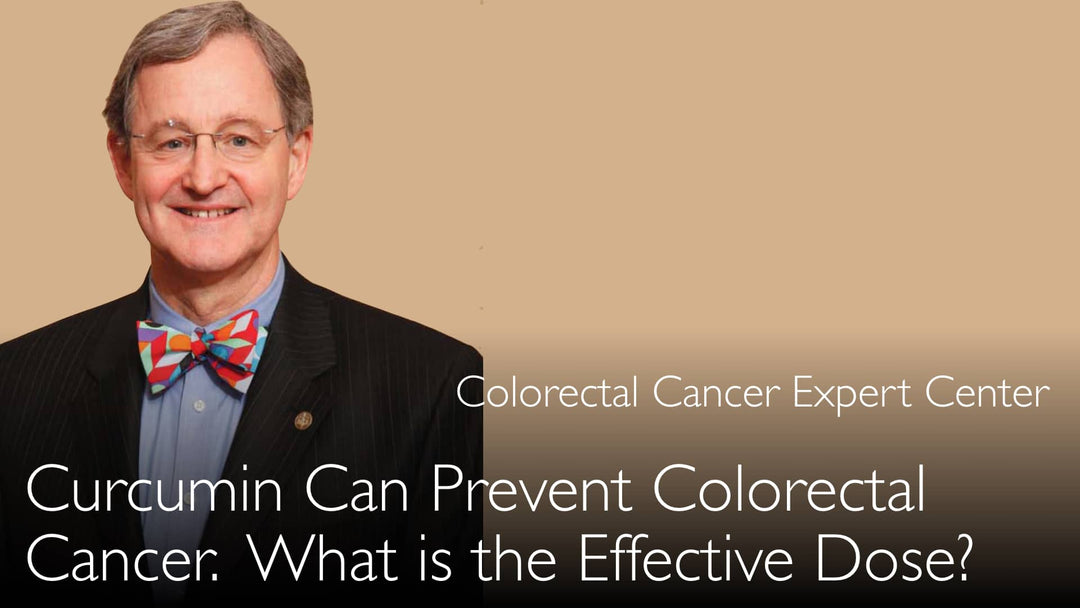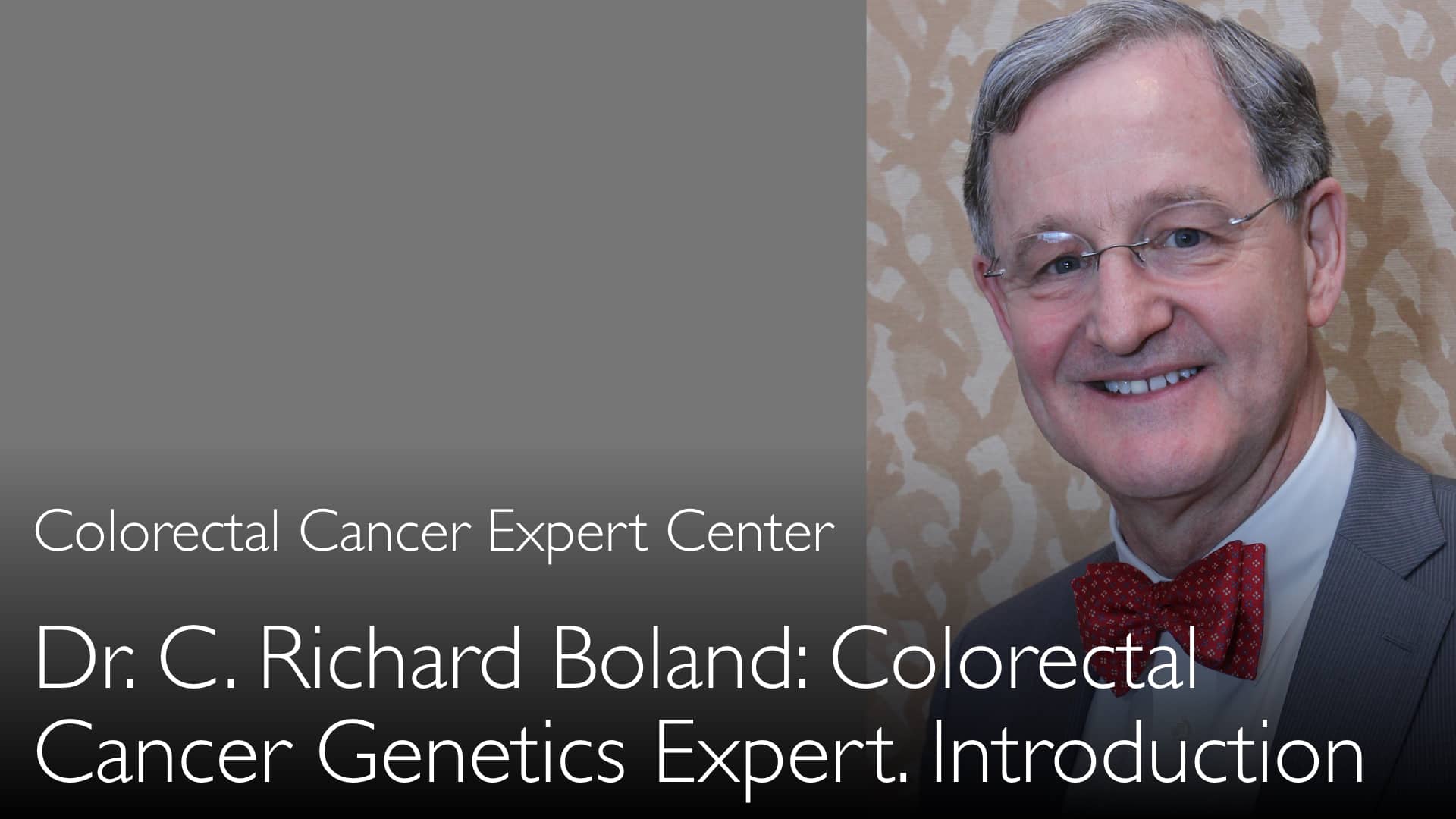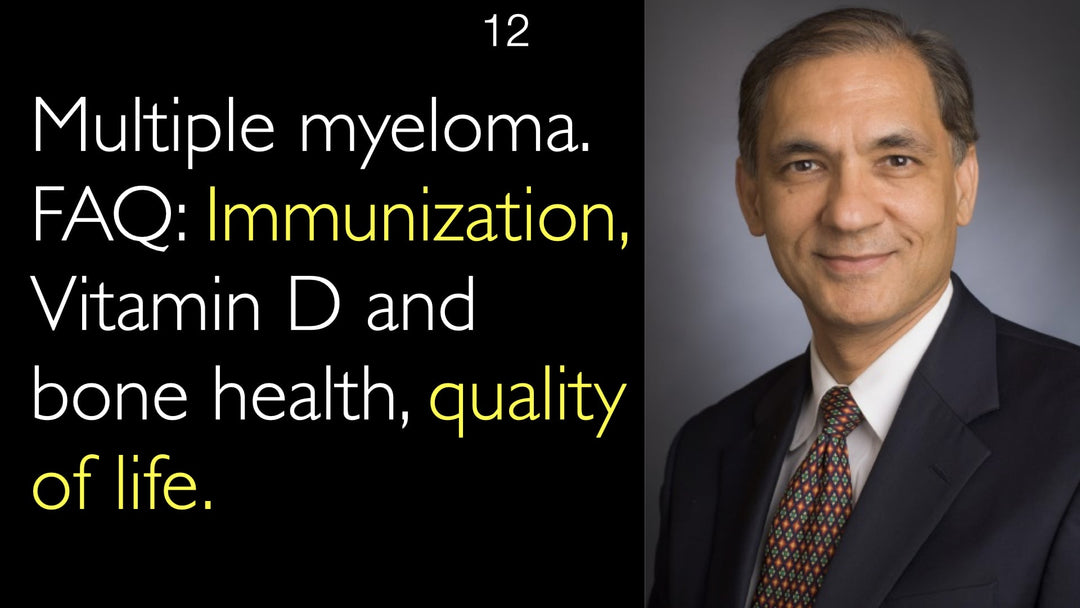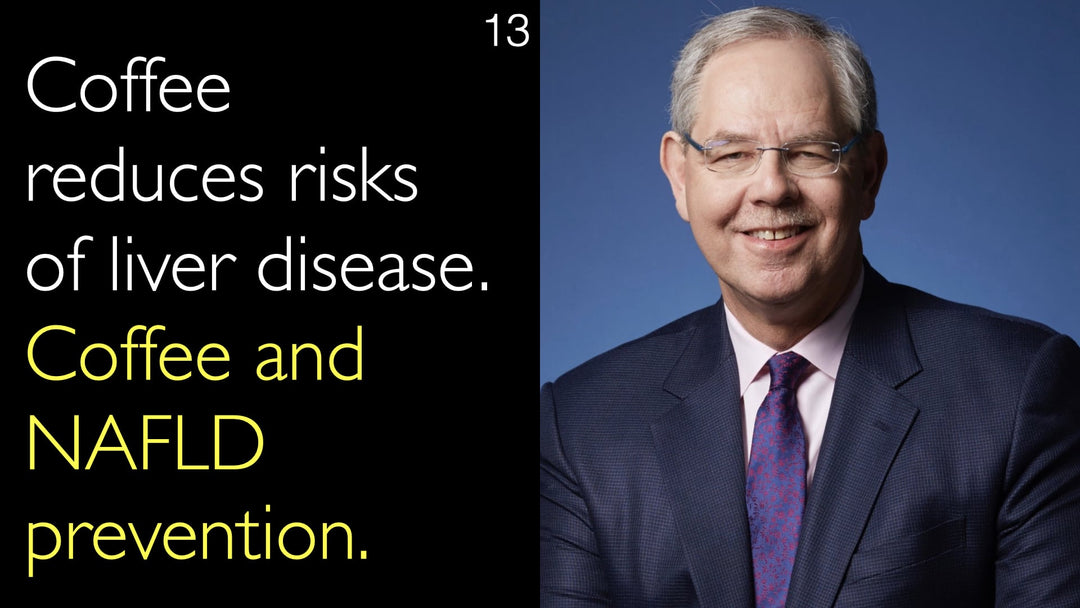Leading expert in colorectal cancer prevention, Dr. C. Richard Boland, MD, explains how curcumin—the active compound in turmeric—reduces inflammation and may prevent colon cancer. Research shows populations consuming 300 mg daily have 20 times lower cancer rates, with clinical trials confirming curcumin's safety even at high 12-gram doses while modulating key cancer pathways like NFKB and gene methylation.
Curcumin Benefits for Colorectal Cancer Prevention: Dosage and Mechanisms
Jump To Section
- Curcumin's Colon Cancer Protection
- Optimal Turmeric Dosage for Prevention
- Anti-Inflammatory Mechanisms
- Gene Regulation Effects
- Clinical Trial Evidence
- Safety Profile
- Integrative Medicine Approach
- Full Transcript
Curcumin's Colon Cancer Protection
Dr. C. Richard Boland, MD highlights striking epidemiological data showing regions with high turmeric consumption—like India—experience up to 20 times lower colorectal cancer rates compared to Western populations. The gastroenterologist notes this correlation emerged through collaboration with colleague Dr. Ajay Goyal, who recognized curcumin's traditional use in India as both an antimicrobial and anti-inflammatory agent.
Optimal Turmeric Dosage for Prevention
A typical Indian diet provides about 300 mg of curcumin daily (100 mg per meal), which Dr. Boland suggests may contribute to cancer protection without toxicity. Clinical trials have tested doses up to 12 grams/day safely, though the researcher emphasizes lower culinary amounts likely offer preventive benefits. This contrasts with failed pharmaceutical preventatives that showed unacceptable toxicity.
Anti-Inflammatory Mechanisms
Curcumin's primary cancer-preventive action involves suppressing the NFKB molecule, a key regulator of inflammation linked to tumor development. Dr. C. Boland, MD, explains that unlike single-target drugs, curcumin modulates multiple pathways—a characteristic of many natural compounds. Hundreds of studies demonstrate its ability to "turn off" inflammatory cascades in laboratory and animal models.
Gene Regulation Effects
The compound uniquely influences gene methylation patterns, reactivating silenced tumor suppressor genes differently than pharmaceutical demethylating agents like 5-azacytidine. Dr. C. Richard Boland, MD notes this epigenetic regulation, combined with anti-inflammatory actions, creates a multipronged defense against cancer initiation—particularly for inflammation-driven malignancies like colorectal cancer.
Clinical Trial Evidence
Early-phase trials show promise for curcumin in ulcerative colitis and familial polyposis—conditions carrying high cancer risk. Dr. Boland describes ongoing research exploring curcumin's potential as both a standalone preventive and chemotherapy adjunct, particularly for cancers with hypermethylated genes. However, he cautions that optimal clinical applications require further study.
Safety Profile
With no observed toxicity even at 40 times typical dietary intake (12 g vs 300 mg), Dr. C. Boland, MD, emphasizes curcumin's exceptional safety margin. This contrasts sharply with failed synthetic preventatives that showed adverse effects during development. The researcher notes turmeric's centuries of culinary use provides additional reassurance about long-term safety.
Integrative Medicine Approach
Dr. C. Richard Boland, MD advocates the integrative medicine model—first validating traditional remedies' safety, then researching mechanisms—as exemplified by curcumin studies. He contrasts this with conventional drug development's high failure rate, citing Dr. Francis Collins' "valley of death" metaphor for promising lab compounds that fail human trials. For low-risk options like curcumin, Dr. Boland suggests "spicing up your food" offers potential benefits while research continues.
Full Transcript
Dr. Anton Titov, MD: Curcumin reduces inflammation. How does curcumin prevent colon cancer? Colorectal cancer risk is the lowest in areas where people eat the most curcumin. People in India have 20 times less colon cancer compared with some European areas. How much curcumin do you have to eat to reduce colon cancer risk?
Dr. C. Boland, MD: Curcumin is a major yellow pigment and active component of turmeric. Curcumin has been shown to possess anti-inflammatory and anti-cancer activity.
Dr. Anton Titov, MD: You have published several fascinating clinical trials that demonstrate that colorectal cancer can be prevented by using curcumin. How does curcumin prevent colon cancer formation? How much curcumin does one have to eat to benefit from the cancer protective effect of curcumin?
Dr. C. Boland, MD: Since the first time I started doing cancer research, I got interested in how we might be able to prevent cancer. Several cancer-preventing medications have come and gone because these medications had significant toxicity.
So Ajay Goyal, Ph.D., raised the idea of curcumin in colorectal cancer. Dr. Goyal is my close colleague. He comes from India, where people eat a lot of curcumin. He knew about the biological effects of curcumin—it has anti-inflammatory and anti-neoplastic qualities.
There are literally hundreds of scientific articles that show in the laboratory and in animals how potent curcumin is in turning off inflammation. In India, Dr. Goyal was telling me, some mothers will use curcumin on a little child as a patch to cover scratches on skin. So curcumin is used as an anti-microbial substance.
India has one of the lowest incidences of colon cancer in the world. In some areas of North America and Europe, the incidence of colon cancer is 20 times as high as it is in India. And in the places in India where the colon cancer risk is the lowest, they eat the most curcumin.
But it's a complicated story. The total caloric intake is lower among Indians. Lower caloric intake is known to have an anti-cancer effect. There are a lot of vegetarians in India, and most Hindus will not eat beef. All these dietary factors are involved in colon cancer risk reduction.
A typical Indian diet has about 100 milligrams of curcumin per meal, so it's about 300 milligrams of curcumin per day. If curcumin is so potent in reducing colon cancer incidence in India, it would be a very low dose to have an anti-cancer effect.
300 milligrams of curcumin has no toxic effects on the body. In a Phase 1 clinical trial of curcumin, you could give up to 12 grams of curcumin per day, and it had no toxic effects. But curcumin reduces levels of the NFKB molecule in people's lymphocytes.
There have been many attempts to understand how curcumin works to prevent cancer. If you take a look at most preventive medications, you will see a picture of a biochemical pathway. The medication will have an arrow pointing to one part of that pathway where it exerts its effect.
But curcumin has been extensively studied, and it has many effects—there are many arrows that point to where curcumin acts. It regulates methylation and also reduces the level of the NFKB molecule. So curcumin seems to have a broad number of actions, for whatever reason.
One of curcumin's effects in the laboratory is to de-methylate silenced genes. We can compare curcumin to more toxic medications used in the laboratory to de-methylate genes. Curcumin acts differently and de-methylates different genes than 5-azacytidine.
There have been a couple of small clinical trials of curcumin. They showed that curcumin might have a beneficial effect in chronic ulcerative colitis. Curcumin might also help reduce cancer risk in familial polyposis coli. So curcumin may help in chronic inflammatory disease and in polyp formation diseases.
Many people are trying to see how we can use curcumin as a primary cancer preventive medication, or maybe we can even use curcumin in treating cancer. There are some cancers that have a lot of hyper-methylated genes. Then maybe you can use curcumin together with chemotherapy. This may bring a better cancer treatment effect.
The main positive thing about curcumin is that it has many biological effects and appears to be very safe. But we don't yet know exactly how to use curcumin to prevent or treat cancer. In the next few years, we might be able to know how to use curcumin.
At the very least, you can spice up your food. There is nothing wrong with that! This is one of the principles of Integrative Medicine—if something has been used for a long time and is proven to be safe, and if it might have a beneficial effect, then it's a different kind of burden of proof whether it can or cannot be used.
Dr. Anton Titov, MD: I had interviews at the UCSF Center for Integrative Medicine. We talked about potentially very safe substances that can be used and potentially be beneficial to cancer prevention and treatment.
Dr. C. Boland, MD: That's a very good point. Because we are reversing the direction of discovery. One way to do medical research is to find a medication in the laboratory that has a beneficial effect, and to show in preclinical clinical trials that the medication candidate works in mice and does not hurt mice. Then we conduct clinical trials in humans.
But most medications end up dying in what Dr. Francis Collins calls the "valley of death." Many medication candidates fail in clinical trials and cannot be used. But another way of doing medical research is to take something that's been used for a long time and known to be safe. Then we can test if this substance has some biological effects.
Each of these methods has its strengths and weaknesses. But at least in the case of curcumin and other spices—ginger and pepper—we know they are safe to use. Then we can work on finding out how to use them and what is the effective dose for treatment or prevention of cancer.








